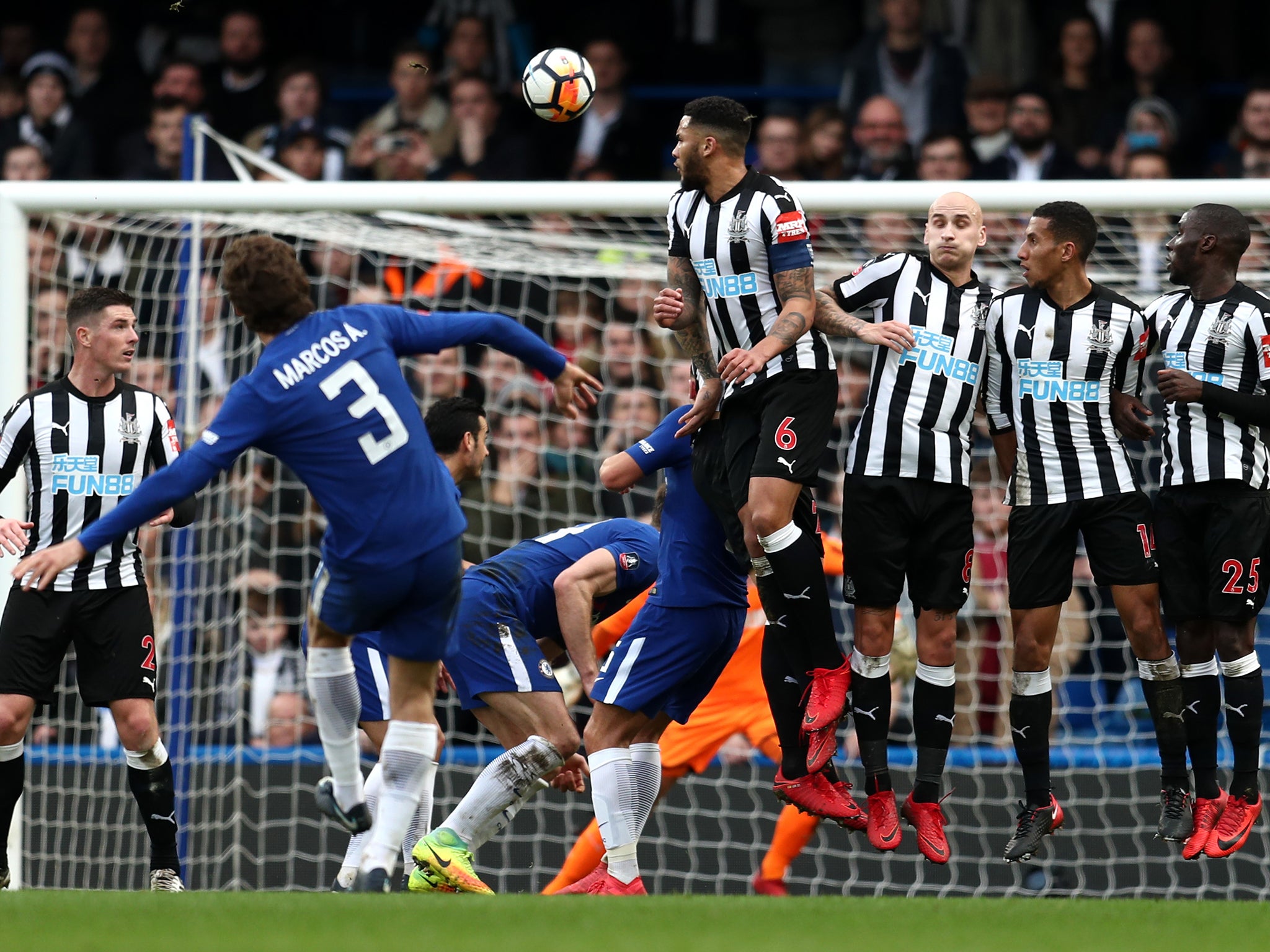Marcos Alonso may not have succeeded in another era, but there might not be a more perfect player for here and now
In the same way that streaming services discovered reggaeton for a new audience, a free-wheeling wing-back has come into his own in 2018 when it mightn't have been possible in a different period

With an apologetic shrug of the shoulders, Marcos Alonso walked straight past the massed banks of microphones and tape recorders. There would be no time for interviews after his scene-stealing performance in Chelsea’s 3-0 FA Cup win over Newcastle. For he had somewhere else to be. “I have to go to a J Balvin concert,” he called out as he hastened in the general direction of the car park.
For those unfamiliar with the output of J Balvin, the Colombian singer is one of the world’s leading practitioners of reggaeton: the Latin pop craze that has been sweeping the world since around last summer, when ‘Despacito’ came to define the summer of 2017 in the same way the bubonic plague came to define the summer of 1349.
J Balvin may not necessarily be a household name in this country, but his videos are among the most popular ever on YouTube, and among the VIP guests at his sold-out show at the Brixton Academy in London were Alonso and Arsenal’s Hector Bellerin. Such is the buzz around reggaeton and its leading lights at the moment that Balvin is comfortably more famous than both right now.
The rise of reggaeton has been driven by Latin pop stars like Balvin, Luis Fonsi, Maluma and CNCO, and elevated to global appeal via collaborations with popular English-language artists like Beyonce and Justin Bieber. What makes it interesting, however, is that it is really more of a revival: a reimagining for a modern audience of a popular musical trend from two decades ago.
Changing production techniques, changing methods of consumption, perhaps even changing tastes: all of these have aligned at just the right moment to give reggaeton its brilliant moment in the sun. Which brings us back, abruptly and yet with a satisfying symmetry, to Alonso: a player whose sudden and spectacular moment of cultural zeitgeist makes him perhaps the ultimate reggaeton footballer.
Though he has been plugging away in the background for years, and although the tactical roots of his position lie decades in the past, you get the feeling Alonso is a very 2017-18 sort of player: one who could perhaps have thrived in other eras, but could only have thrived to this extent right here and right now. The general movement within the game towards three-men defences, and the increasing onus on wide players to contribute goals as well as crosses, have created the perfect soil in which players like Alonso can flourish.
For Alonso is one of the small but growing number of elite wing-backs in the modern game. Though most Premier League teams have tried a variation of the three-man defence at some point this season, most players deployed in the wing-back role remain reconditioned full-backs. Alonso, on the other hand, is a genuine specialist: as adept poaching crosses at the far post as he is stopping them on his own by-line, or swinging them in himself.
His stunning free-kick against Newcastle was his seventh goal of the season: more than Pedro. In fact, it is more than any defender in Europe’s top five leagues: even if you occasionally wonder, as you watch Alonso blitzing forward, not merely joining attacks but leading them, whether it is actually fair to call him a defender at all.
What is clear is that Alonso has found a time and a team, a coach and a system, that is perfectly suited to his strengths. Ultimately, this may count against him. Such is his suitability for the wing-back role, which he has played almost exclusively since his days at Fiorentina, that it is unclear whether he would even be equipped to play in a back four if required. There are occasional question marks over his one-on-one defending, and his pace is far less impressive than his stamina. Those doubts are almost certainly why Alberto Moreno keeps getting called up to the Spain squad ahead of him, and why he is still only an outside chance for this summer's World Cup.
That Alonso is yet to be summoned to the national side will be a source of some relief to Chelsea. After Cesar Azpilicueta, Alonso is their most used player this season. His 90 minutes against Newcastle pushed him near the 3000-minute mark, and with Chelsea still fighting on three fronts, the arrival of Emerson Palmieri from Roma as cover for his position cannot arrive soon enough.
With Chelsea’s fortunes difficult to predict a week in advance, let alone a month or a season, it is ultimately hard to map Alonso’s future too far ahead either. As superb a player as he is, there is a touch of the serendipitous to his sudden ascent, the sense of planets aligning. Would he have as much of an impact in a different era, at a different club, under a manager less convinced of his gifts? Chelsea fans, you suspect, are hoping they never find out.
Subscribe to Independent Premium to bookmark this article
Want to bookmark your favourite articles and stories to read or reference later? Start your Independent Premium subscription today.

Join our commenting forum
Join thought-provoking conversations, follow other Independent readers and see their replies